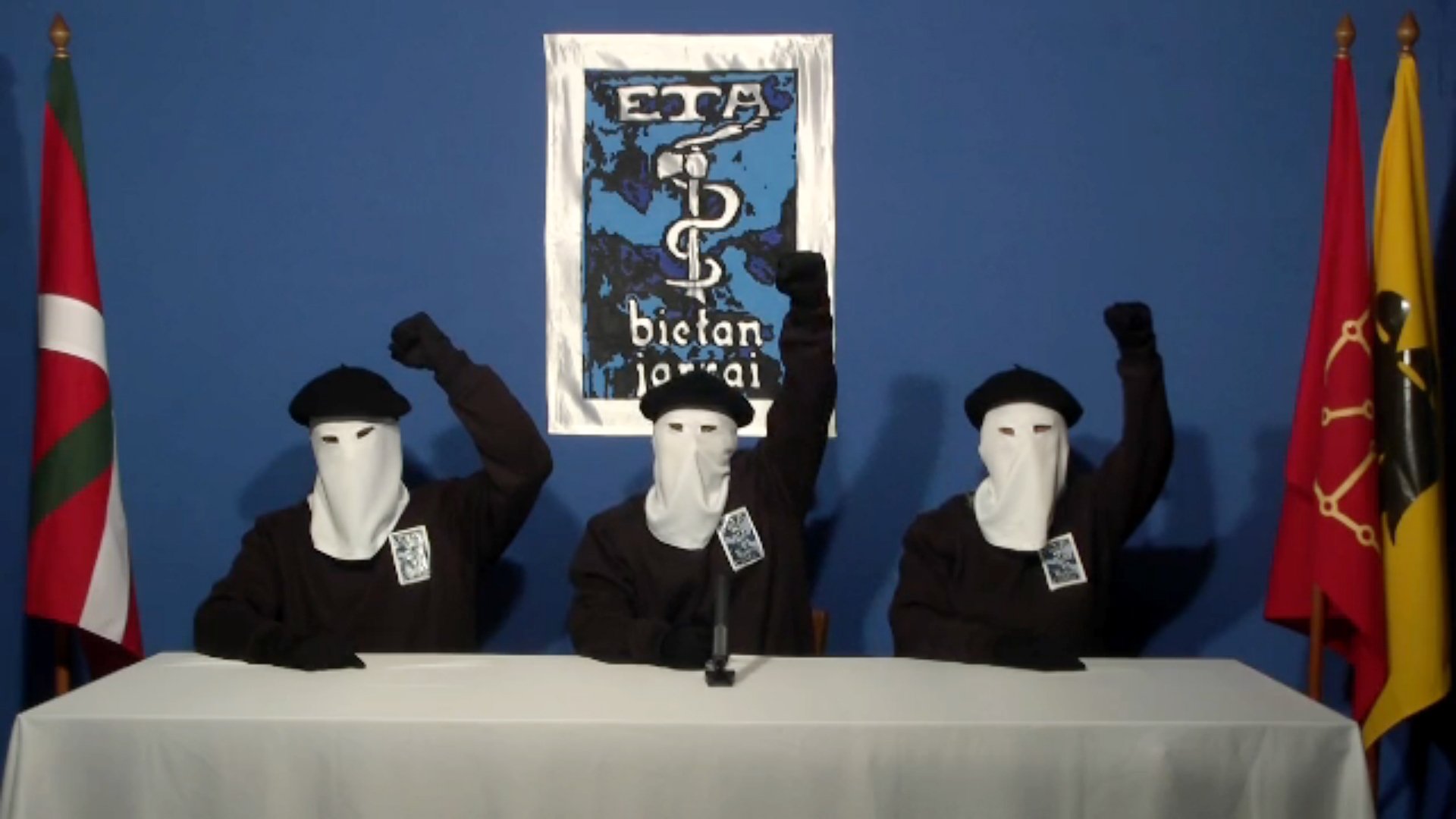Terrorist organisation ETA has, early this Friday morning, released a statement, published in Basque newspapers Gara and Berria apologising to the victims of its actions and their families and committing to "overcome the consequences of the conflict once and for all, so that such events never happen again in the future".
The news comes two days after the group announced its definitive dissolution for the last week of May this year. Before the final announcement, an event will be held in the French Basque Country involving "political and social agents and international personalities". Details of this event will be announced next Monday in a press conference involving representatives of Brian Currin's International Contact Group, Bake Bidea and Foro Social. Brian Currin is a South African lawyer who was involved in that country's post-apartheid Truth and Reconciliation Commission.
We are aware that we have caused great pain
The organisation says they are aware they have "caused great pain throughout this long period of armed struggle. We know much of this harm cannot be mended". As such, they have decided to "express our respect to all the victims of ETA’s actions... whether they were killed, injured or harmed in any other way". The next sentence is four words long: "We are truly sorry".
They recognise that, over the decades, "people died, were wounded, tortured, kidnapped or had to leave into exile", recognise their involvement in this and say bluntly that "none of this should have ever taken place and it should have not continued as long as it has".
"Whether through mistakes or as a consequence of mistaken decisions, ETA has also caused victims among people who had no direct part in the conflict", they write, before asking for forgiveness from these victims and their relatives.
ETA condemns everything that happened
ETA admits that the statement "will not cure" the harm caused, nor reduce it. But they don't limit themselves to renouncing their own actions, they also criticise "much of what the State forces and their regional allies have done too". They say they want to move towards building peace which, for them, means looking for a democratic solution to the political conflict.
"Otherwise", they continue, "we would be led to understand that there has been harm done which was just and deserves praise. ETA’s attitude to this matter, however, is different: we wish none of this had ever happened. We wish freedom and peace had taken root in the Basque Country a long time ago."
"Nobody can change the past"
Starting to turn towards the future, they say "nobody can change the past. But to distort or to try to cover up parts of that past would be one of the worst legacies anyone could leave for the future".
Then, in the penultimate paragraph, they reemphasise: "let us all acknowledge our responsibilities and the harm we caused. Despite having different points of view and feelings we must all acknowledge and respect the suffering of others. This is exactly what ETA wishes to express."
They say one of the aims for the future has to be reconciliation which "is already happening, sincerely, on many levels, among the people".
"Reconciliation is necessary to bring out the truth in a constructive way, to cure wounds and to build guarantees for such suffering not to happen again in the future. It is possible to build peace and achieve freedom in the Basque Country by finding a political solution to the conflict," the statement concludes.

